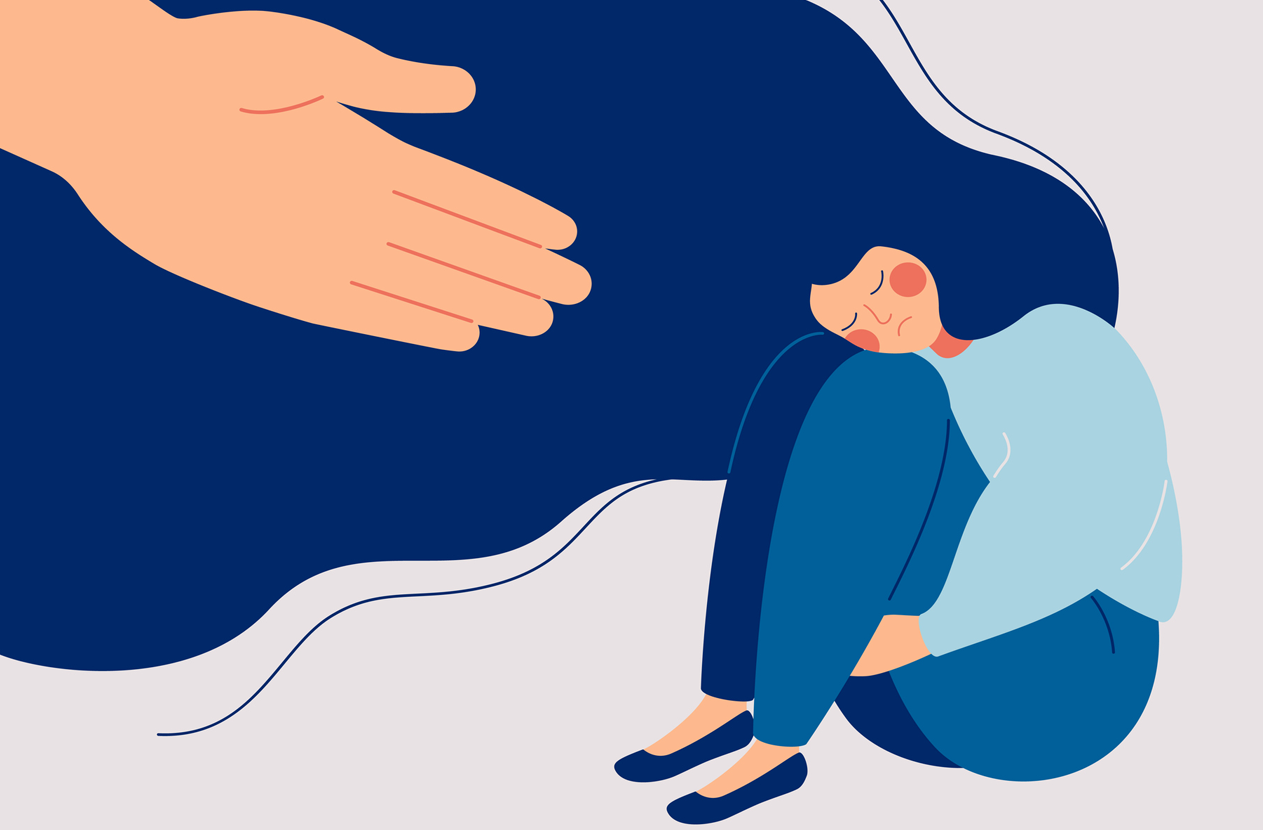Human connection is not just a social luxury; it’s a vital component of our overall well-being. Studies have consistently shown that engaging in meaningful relationships helps in reducing stress levels, thereby lowering the risk of chronic diseases such as cardiovascular disease and type 2 diabetes, and offering protection against depression and anxiety. They also foster a sense of belonging and purpose, which can enhance our self-esteem and resilience in the face of life’s challenges. This reinforces the age-old wisdom that we are indeed social beings, thriving best in the warmth of each other’s company.
In the modern world, with more ways to communicate than ever, thanks to technology, you might think that feelings of connection between people should be at an all-time high. But even though we have the ability to reach people at any time with tools like email, social media, and text messaging, many people feel deeply unsatisfied with the quality of social connection in their lives.
Worldwide, people are reporting feeling lonelier than ever. A 2023 Meta-Gallup survey taken across 142 countries found 24% of people ages 15 and older reported feeling lonely. And in the US, the Surgeon General’s office even put out a special report, “Our Epidemic of Loneliness and Isolation,” to address this dire issue and make it a national health priority.
According to the US Surgeon General report, a lack of social connection can increase disease incidence, making us more susceptible to cardiovascular disease, type 2 diabetes, infectious diseases, and depression and anxiety, as well as impacting mortality rates.
But why do we as a society feel so alone, and what can we do about it?
In a quest to find the answers, we turned to Dr. Janina Scarlet, a San Diego, CA-based clinical psychologist who wrote the recently released book Unseen, Unheard, Undervalued: Managing Loneliness, Loss of Connection and Not Fitting In. After her own struggles and experience with loneliness, Dr. Scarlet sought to share what she had learned about loneliness and how to navigate this uncomfortable emotion.
We sat down with her to examine the impact of loneliness on our lives, how you can feel more connected, and the ways in which you can help others feel less lonely, too.
Defining Loneliness and its Universality
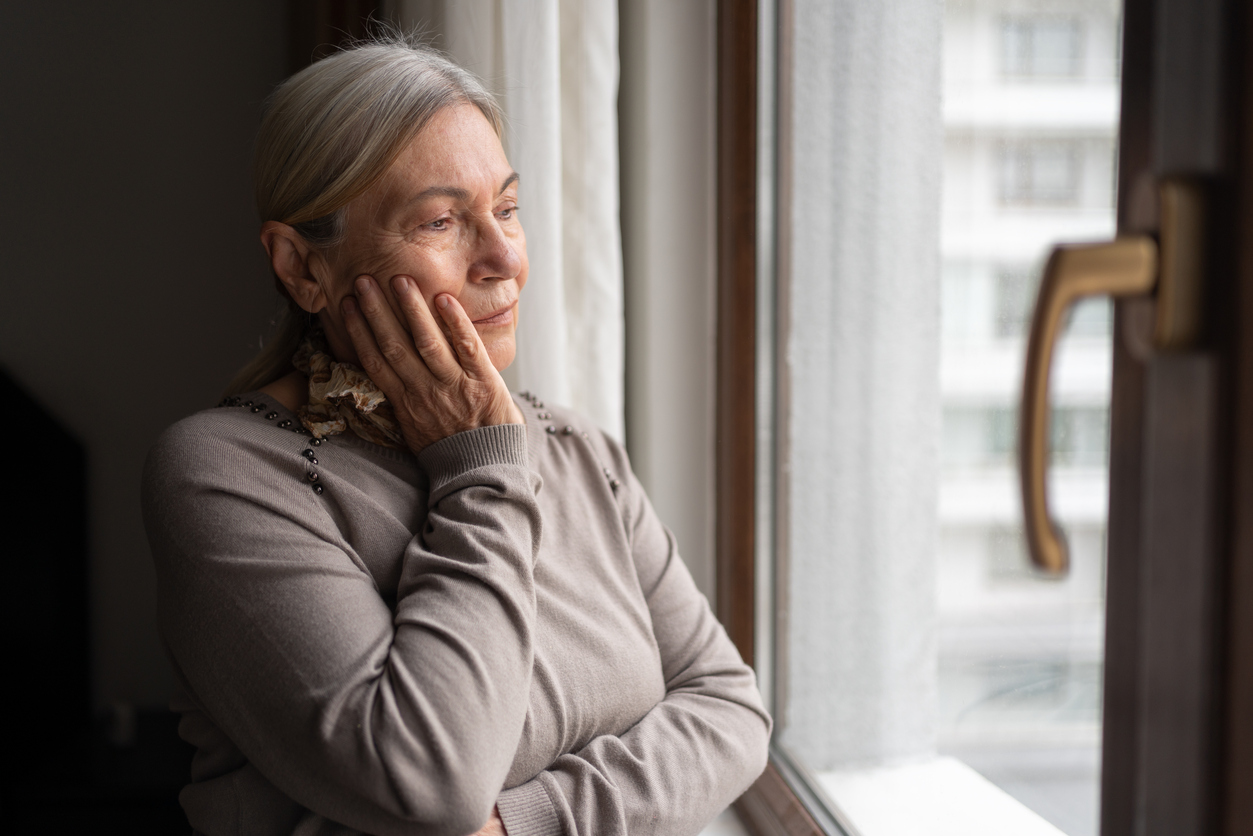
FRN: Thank you for being with us. Loneliness is such an isolating emotion, which makes it hard to know if we’re truly alone or not. Can you tell us, is loneliness normal, and does it affect everyone equally?
Loneliness does not mean being physically alone in space. It means feeling emotionally disconnected from other people. And it is something that everyone who is capable of feeling emotions is able to feel.
Dr. Janina Scarlet: Loneliness is absolutely normal. I just think most of us don’t talk about it or might not know what it is. Loneliness is a universal emotion, much like joy and sadness and fear. Loneliness does not mean being physically alone in space. It means feeling emotionally disconnected from other people. And it is something that everyone who is capable of feeling emotions is able to feel.
FRN: What are some of the causes of loneliness? You mentioned a little bit about emotional disconnection from people, and maybe physical, too; but what else beyond that?
Dr. Janina Scarlet: Grief, trauma, bullying, being made to feel like the “other.” So, any discrimination, racism, sexism, xenophobia, homophobia, all of those can greatly increase our feelings of loneliness — when we feel like we don’t belong, when we feel like we are the other, or when we are made to feel like we are the “other” by society, or when we’re invalidated about how we’re feeling.
For example, when we’re going through chronic illness other people might tell us to “get over it.” So, in many of those situations, people are likely to feel misunderstood by others and, therefore, lonely and emotionally disconnected.
FRN: Why do you think that older adults are particularly at risk for loneliness?
Dr. Janina Scarlet: I think for many older adults, if they’re, for example, not able to express what they’re going through, when they’ve maybe lost loved ones to either death or illness or distance, or maybe they don’t feel like they have a safe place to express what they’re going through, even if they’re around other people — even if they’re living with other people — they’re more likely to feel lonely.
The Interplay of Loneliness and Health
FRN: Do you think experiencing chronic pain or illness plays into it as well?
Dr. Janina Scarlet: Absolutely. People who are going through chronic illness are a lot more likely to feel lonely. And especially when folks have been taught to “suck it up,” they’re more likely to pretend to be okay, whereas inside, they might be really struggling.
And it’s when they meet other people who might be going through it, too, that their masks are more likely to come down. And they’re more likely to find that sense of belonging.
In 2020, before the pandemic started, the United States Surgeon General was estimating that the rate of loneliness in the United States was about 25%. The current loneliness estimates in the United States are now at about 50%.
And in places like the United States, the United Kingdom, Canada, and, I believe, Australia, where loneliness has been studied in emergency rooms, it was estimated that about one in every four to five emergency room visits had to do with loneliness.
FRN: That’s so sad. Well, going along the lines of health, then, why is it that human connection is so important to good health, not just mental health, but even disease prevention?
Dr. Janina Scarlet: Absolutely. We as humans are wired for connection, not only psychologically but also physiologically.
When we’re around other people, especially people that we like, people we trust, our bodies produce this very special hormone called oxytocin. And oxytocin is something that makes us feel better, not only emotionally but also physically. It strengthens our immune health, and it strengthens our cardiovascular health as well.
Individuals who have a steady supply of oxytocin, if you will, through meaningful social connections, are actually less likely to even develop things like the common cold because their immune system is stronger.
FRN: That’s really incredible. It also makes me think about — what is it — broken heart syndrome, too. So is that the same idea?
Dr. Janina Scarlet: Absolutely. So, broken heart syndrome is a physiological phenomenon where somebody dies, usually from a heart attack, within a year of a painful loss, such as the loss of a spouse or a child. However, we find that when individuals who are bereaved have a significant support system where they feel truly seen and supported and safe to express their pain, the risk of broken heart syndrome is significantly reduced.
Food and Loneliness
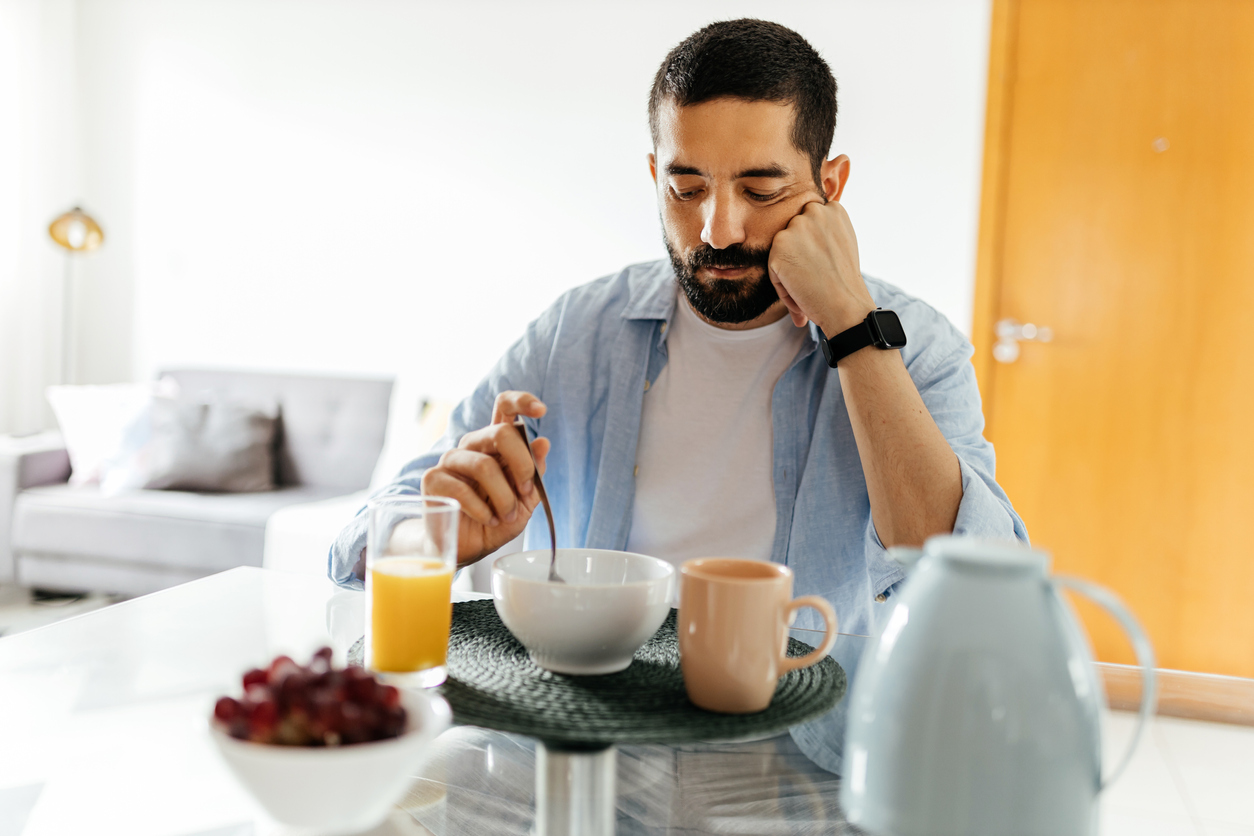
FRN: Yeah. I feel like most people don’t really think about the impact that their emotions really can have on their health in the short term, but in the long term, too.
Besides health — I don’t know if you can speak on this — but what role does food and connecting over food have in preventing loneliness?
Dr. Janina Scarlet: I think many cultures worldwide connect over different activities, whether it’s food or making food. For some, it’s cleaning together. For some, after disasters, it’s people getting together and helping to rebuild.
So, I think when people have some tradition or purpose that brings them together, that sense of belonging increases, and that oxytocin development really spikes, making us healthier.
So, of course, we know that ideally, we want to eat healthy; we want to exercise. But it seems that a sense of belonging is just as important as a healthy diet and exercise. So, if we can bond over activities like walking together or eating together, I imagine that we can be even healthier.
A sense of belonging is just as important as a healthy diet and exercise.
FRN: Yeah, totally. What if people around you aren’t necessarily eating the same diet as you or the same types of foods? Do you have any tips for navigating that situation to still connect with people?
Dr. Janina Scarlet: I don’t think it matters what people are eating so long as everyone is welcoming. I think that when people have dietary restrictions or they, for whatever reason, might need to have a different eating plan, the most important thing is that everyone is accepting of whatever that person needs to eat.
So, for example, I have certain food allergies, and when I go somewhere where people are eating things that I’m not able to have, it doesn’t bother me so long as folks are inclusive. For example, when I went to my in-laws’ Thanksgiving dinner, they were very kind in terms of asking me what foods I was able to have and made me a separate dish within my allergy restrictions. And that made me feel included, even though there were certain things they were eating that I wasn’t and vice versa.
So I don’t think it’s about eating the same food. I think it’s about folks respecting each other’s differences that really matters.
Dr. Scarlet’s Experience with Loneliness
FRN: I agree. If you are comfortable, could you share how you’ve experienced loneliness in your own life and what helps you connect with others?
Dr. Janina Scarlet: Yeah, absolutely. So, I grew up in the former Soviet Union. And the mentality was that if you’re feeling lonely, you’re simply not being grateful. So, the assumption was that you just have to remember all these wonderful people that are in your life — for example, your mom or your dad or whoever, or your cat — and that should magically make you feel better. Only, when I received this advice from my family members and teachers, I felt even more alone because I felt even more misunderstood about my experience.
So for me, fictional characters helped me feel more seen. You see, my family and I lived through the Chernobyl nuclear disaster in 1986, but not before being exposed to radiation. When I came to the United States, I experienced painful bullying, with many children in school asking me if I was “radioactive” or “glow-in-the-dark.”
But seeing how fictional characters dealt with loneliness in terms of people who have been discriminated against, let’s say the X-Men [Editor’s Note: A group of fictional comic book characters who are mutants with superhuman abilities], allowed me to see a stronger representation of my feelings than I was able to meet in real life. And because I was able to find even fictional characters to connect with, I felt less lonely.
When I became a psychologist, I started using fictional metaphors or fictional characters to invite folks to find someone who shares their experience. When they were able to resonate with a fictional character, they were often able to feel less lonely and more understood. And if they were able to, for example, join a support group where there were other folks who had similar experiences, they were able to feel less lonely in that regard as well.
So for me, it was finding someone, even a fictional character, who shared my experience that really helped me to manage loneliness. So that’s something I try to do even to this day.
And then my other strategy has been journaling, to become my own witness to my experience, and that’s something I encourage folks to do on a regular basis as well.
Giving Ourselves What We Need
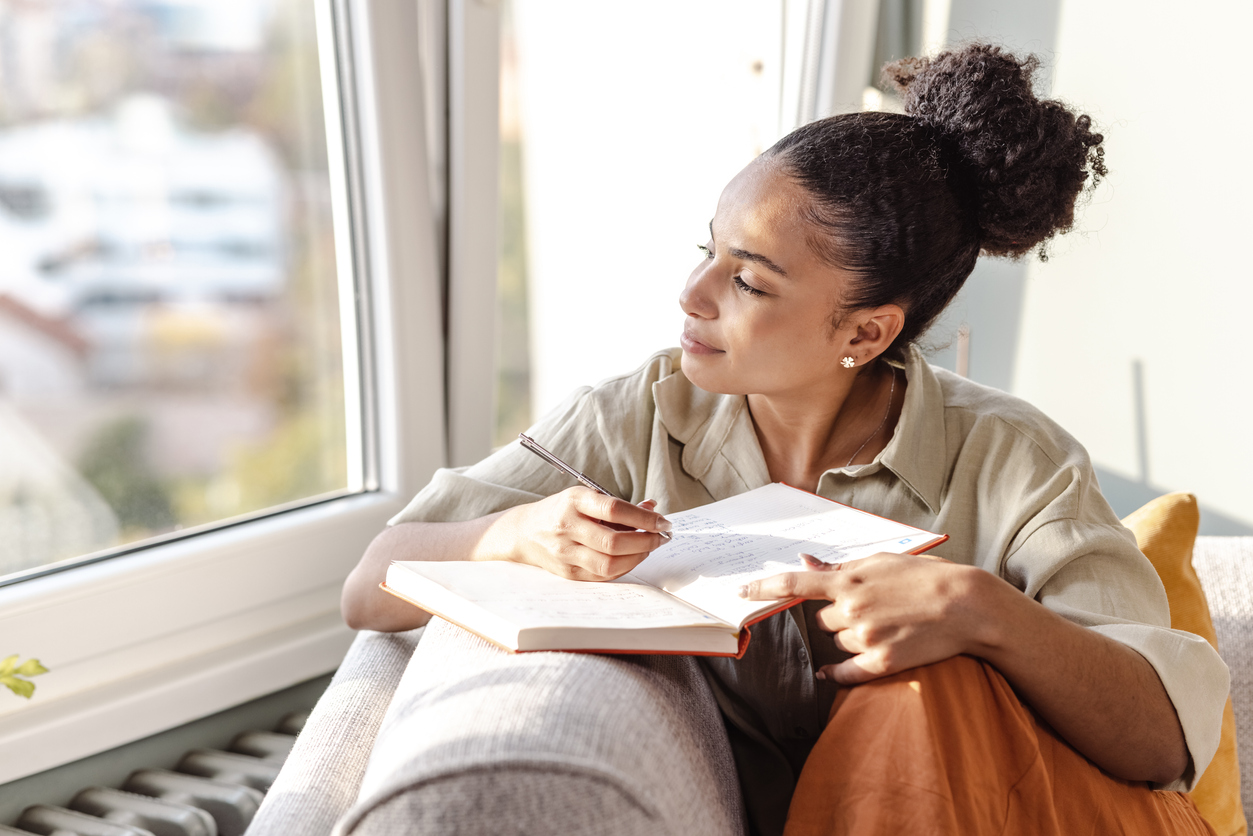
FRN: That was actually what I was going to ask you next. What are some strategies or techniques that someone could use to help validate their own feelings and experiences?
Dr. Janina Scarlet: One exercise I really like to invite folks to do is an exercise I developed that’s called journaling in two parts. So, in this exercise, we split the page in half by drawing a line down the middle. And on the left-hand side, we write about how we feel — for example, that we feel misunderstood or invalidated by other people. And on the right-hand side, we write a compassionate response as if we’re talking to a friend.
So if we wrote a bullet point on the left-hand side about our struggles, on the right-hand side, we write a point-by-point response. Or if we wrote it as more of a narrative, on the right-hand side we write a narrative compassionate response. And a lot of folks report feeling significantly less lonely after practicing this exercise.
FRN: What do you think it is about that exercise that resonates with people?
Dr. Janina Scarlet: I think it’s about bearing witness to our experience so that we know what we’re going through, and then providing that compassionate wisdom that we really seek in others. Sometimes, we might fail to get this kind of support from other people because of their lack of skills in offering support. But we know what we need to hear, so through practicing journaling in two parts, we’re able to give ourselves exactly what we need.
And then, once we are able to do that, we might even be able to advocate for ourselves. We might say to, for example, our partner or our friend, “Hey, could you maybe use this statement with me? Could you, for example, tell me, ‘Hey, I see you when you’re in pain, or I hear you.’”
And I think that once we are able to advocate for what we want, we’re more likely to get our needs met and feel significantly less lonely with folks who are willing to meet our needs in that way.
Resiliency and Loneliness
FRN: That’s great. Can you explain the concept of resiliency and building resiliency and how that might relate to loneliness as well?
Dr. Janina Scarlet: So, resilience has to do with getting back up after we feel down. It has to do with the willingness to do something difficult, to come out of something that we’re struggling with. It doesn’t mean not feeling bad. It doesn’t mean that things won’t get us knocked down. Instead, it means getting up and standing up for what we believe in.
And for many folks, I think a lot of times when we get knocked down, let’s say through something painful such as a friendship breakup, we might be really heartbroken about it. So many folks wait to feel better before they start making other friends. But that could take a long time.
So, what I often recommend instead is starting to take action even before we feel ready, because emotions follow actions, not the other way around. When we start taking action, even if it’s outside of our comfort zone, even before we feel fully ready, then we start feeling better faster. It doesn’t mean ignoring our feelings, it means finding that balance between taking action and maybe not pushing ourselves beyond our limits. It means starting to honor what’s really important to us before we feel fully healed, if that makes sense.
FRN: Do you think that resiliency also plays into the health side of loneliness, too, and how that impacts your health? The more resilient you are, the better your body is able to navigate that?
Dr. Janina Scarlet: I do. Many people think resilience is a personality trait, and I don’t. I think resilience is a choice. And what it means is that, again, we might take action because of what’s important to us, even when we still feel unheard, even when we still feel heartbroken.
And I think that the more of these actions we take to start forming meaningful connections — to maybe go to a therapy support group or a grief support group or something like it — the more likely we are to feel more supported, more understood, and over time, perhaps less lonely.
And I want to be very clear. Loneliness doesn’t mean we’re doing something wrong. Loneliness means our needs are not being met. And if we can take a moment to figure out what needs need to be met, then we can better advocate for those needs.
Helping Others Feel Less Lonely
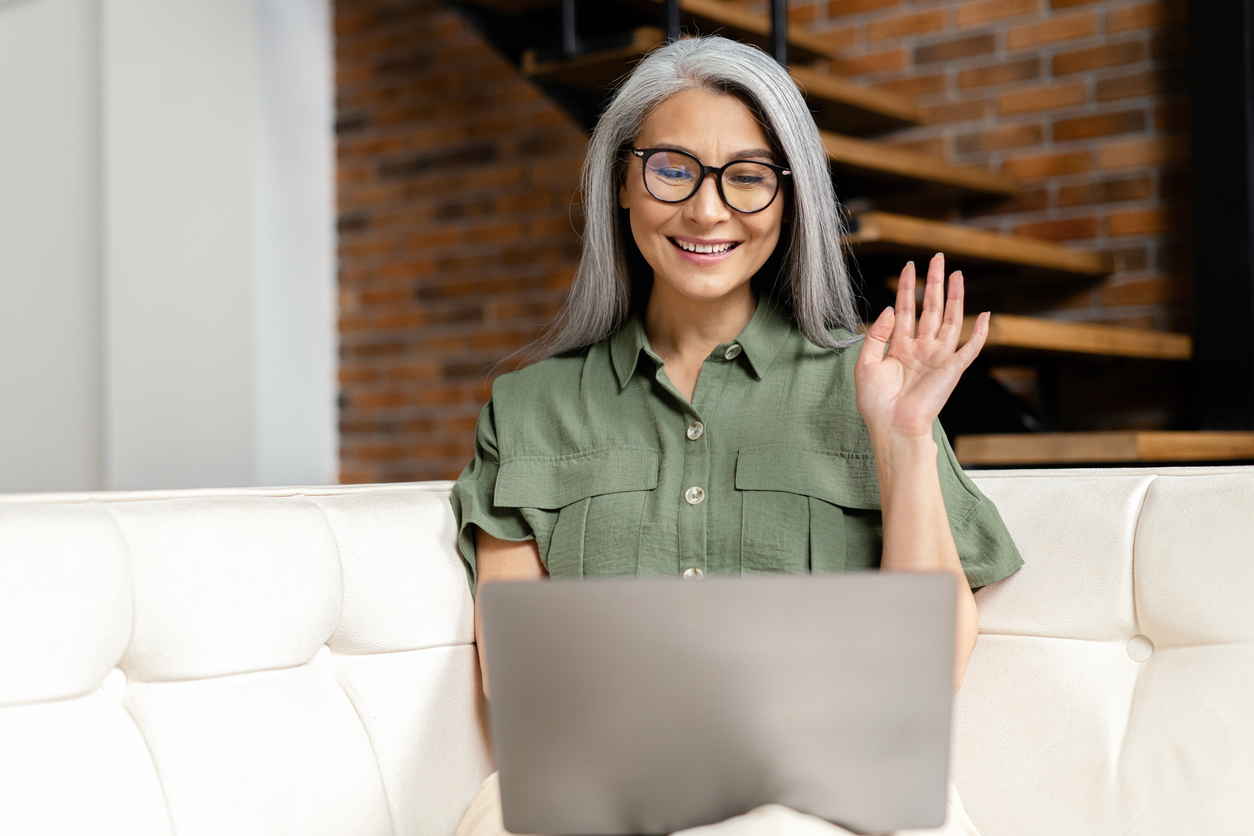
FRN: So going off of that, then, how can we help other people feel less lonely?
Dr. Janina Scarlet: I think one of the best things we can do is to check in with curiosity in terms of, “Hey, would it be okay for me to check in with you? How are you really feeling today if you’re open to talking about it? And what are some ways I can meet your needs?”
I often talk about love languages, not only in terms of romantic couples but also in terms of friendship love languages. I often recommend that people talk to their friends: “Hey, when you’re feeling down, what are some ways that you would like to be supported? And what are some ways that you would like for me to show up for you? And here are some ways that I would like to be supported, and I would like for you to show up for me.”
I think when we’re checking on our friends, asking them for specific guidance is important.
If our friends are, for example, grieving or really overwhelmed, giving them a couple of choices can be really helpful. For example, if I have a friend who is grieving, and I know they’re feeling lonely and overwhelmed, I might ask them, “Hey, what would be the most supportive thing I can do for you right now? Would you like me to come over, or would you like some space right now?” So, I give them a couple of options, and I also let them know, “You don’t have to respond if you don’t want to.”
So in doing that, I’m allowing my friend to not respond at all. I’m letting them off the hook there, and I’m giving them a couple of choices. So they can say, “Yes, please come over,” or, “Can we schedule a call?” or, “You know what, I need a few days of space.” And I find that many people really appreciate choices.
Resources to Help You Feel Less Lonely
FRN: Yes, totally agree. Do you have any resources related to loneliness that you could share?
Dr. Janina Scarlet: Absolutely. I put a lot of them into my book, Unseen, Unheard, and Undervalued. I do think Dr. Vivek Murthy, who’s the current US Surgeon General, his book Together is a really good book that talks about the research behind loneliness.
I do recommend that folks consider either working with a therapist or maybe a support group for whatever they’re going through at that moment. For example, a holiday support group, or for many individuals who, say, had parents with addiction, ACA (Adult Children of Alcoholics) is a free support group that’s available worldwide, even on Zoom, phone, and in-person that a lot of folks don’t know about. So there are many support groups for just about anything that folks are going through that are either low-cost or free that people might be able to attend even from their homes.
FRN: What about if someone has chronic loneliness — a chronic feeling of just being alone?
Dr. Janina Scarlet: It might be helpful in that regard to consider looking into either therapy or, again, either like a local support group or even starting one. Some folks might not realize that they can start their own support group. And you don’t have to be a therapist — so long as you’re not charging or pretending to be a therapist — to just start a loneliness support group. I’ve actually had clients who did that.
I had a student who started a support group in her high school where students would meet once a week for an hour and just talk about their feelings and talk about loneliness and talk about what they were going through.
Other folks might think about what are some ways that they can help other people who are also feeling lonely. This is called post-traumatic growth, when we’re able to make meaning out of what we’re going through and support other people.
So, for example, if I’m feeling really lonely and really disenchanted with something, I’ll send 12 of my friends a message like, “Hey, I love you. I appreciate you. I’m thinking of you. I hope you have a wonderful day.” I never expect a reply. But to me, sending a loving, caring message to other people allows me to feel a stronger sense of belonging.
And then, if I do hear back, that’s lovely, but that’s never the expectation.
I also often encourage people to either volunteer or support other people in those moments when they’re feeling especially alone.
What to Do When Connection Is not Reciprocated
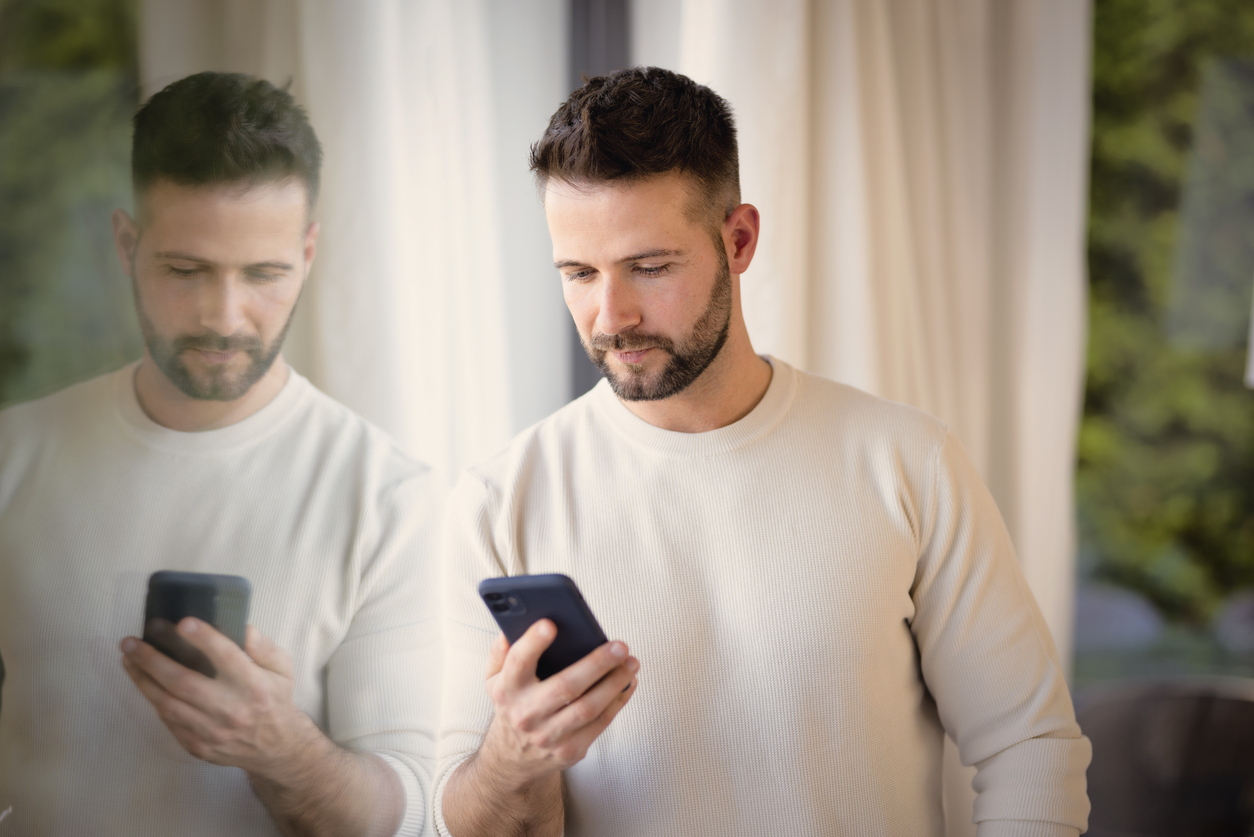
FRN: That’s great advice. Because sometimes I feel like in order to feel connected, we have to connect. And I think some people struggle with that because maybe they always feel like they’re the ones reaching out. But at the same time, I think that’s just what we have to do sometimes.
Going off of that, what do you do if it’s not reciprocated?
Dr. Janina Scarlet: Well, again, when I’m sending out those messages of love, I don’t expect anything in return. But if our needs are chronically not being met… For example, if we have a friend that maybe we reach out to, and we ask for support, and that friend is frequently not reciprocating and not giving us the support that we’re looking for, then we might have a conversation with that friend. Like, “Hey, I’ve noticed maybe we haven’t fully been aligning. Here are my needs. What are your needs? How can we make this friendship work?” And if that friend is not willing to have that conversation or isn’t validating, or is defensive, then we might need to rethink and reevaluate our friendship.
I often say that there are friends we have that are friends of convenience, friends that we’ve had for a long time because we’ve met them in school or at work. And then there are real friends. And real friends are ones that will be willing to have the hard conversations. They might not always be skillful, but for the most part, they’re going to be willing to have conversations and make the friendship work. Whereas friends of convenience are ones that we’ve just known for a while, but they might not be real friends.
So after a while, we might need to think about, do we need to think about these friends as more of acquaintances and change our expectations of them, and maybe invest in some new friendships? So if our needs are chronically not being met, we do need to reevaluate what those needs are and communicate them. And if nothing’s changed, then we need to change something.
Unseen, Unheard, Undervalued
FRN: Okay, great. I’d love for you to talk a little bit about your book and what it’s all about.
Dr. Janina Scarlet: My book, Unseen, Unheard, Undervalued, is about the different aspects of loneliness. As I mentioned, loneliness does not have anything to do with being physically alone. It’s about that emotional disconnection.
And I break it down into those three categories: feeling unseen, for example, ignored by other people; feeling unheard, so invalidated, for example, by other people or gaslit; and feeling undervalued or devalued by other people. So that’s where we’re made to feel like the “other.” So those are the three subtypes.
So the first part of the book breaks loneliness down into those three subcomponents and gives lots of examples and case studies of those three subtypes of loneliness and also research studies to support some of these findings.
And then the second half of the book talks about how we can first practice seeing, hearing, and valuing ourselves, how we can practice self-compassion, for example. And then how we can advocate for ourselves in friendships. For example, by talking about love languages, or our needs, whether it’s with our friends, with our partners, or with our coworkers. And also how we can set boundaries if somebody is not meeting our needs, or if somebody isn’t validating us. And then also how we can continue cultivating the friendships or relationships that do work, such as, for example, by sending out the “just because” text messages.
So, research studies that came out last year (in 2022) have actually found that when we send out the “just because” text — “Hey, I was thinking about you. I hope your day is going well” — people who send those greatly underestimate how significant those messages are to the recipients. The recipients who get those texts report being significantly more moved by those messages than people who send them have anticipated.
I provide some examples of messages that folks can send out and different gratitude practices that folks can do, such as sending a letter of gratitude to somebody who influenced them or supported them. And then imagining what maybe somebody else might say to them if they received a letter of gratitude.
The intentionality of the book is, first and foremost, to validate folks who have been through some of these painful experiences. And second of all, to provide folks with some skills that they’re able to use to support themselves, to advocate for themselves, and then also to deepen significant relationships that they already have.
FRN: Thank you. I’m really excited to read it.
Dr. Janina Scarlet: Thanks. I’m really excited, too. It’s probably one of the most personal books I’ve written. So it definitely has a bit of my autobiographical stuff and also a lot of case studies from a lot of different folks who very courageously contributed their stories to this book.
You Are Not Alone in Your Experience
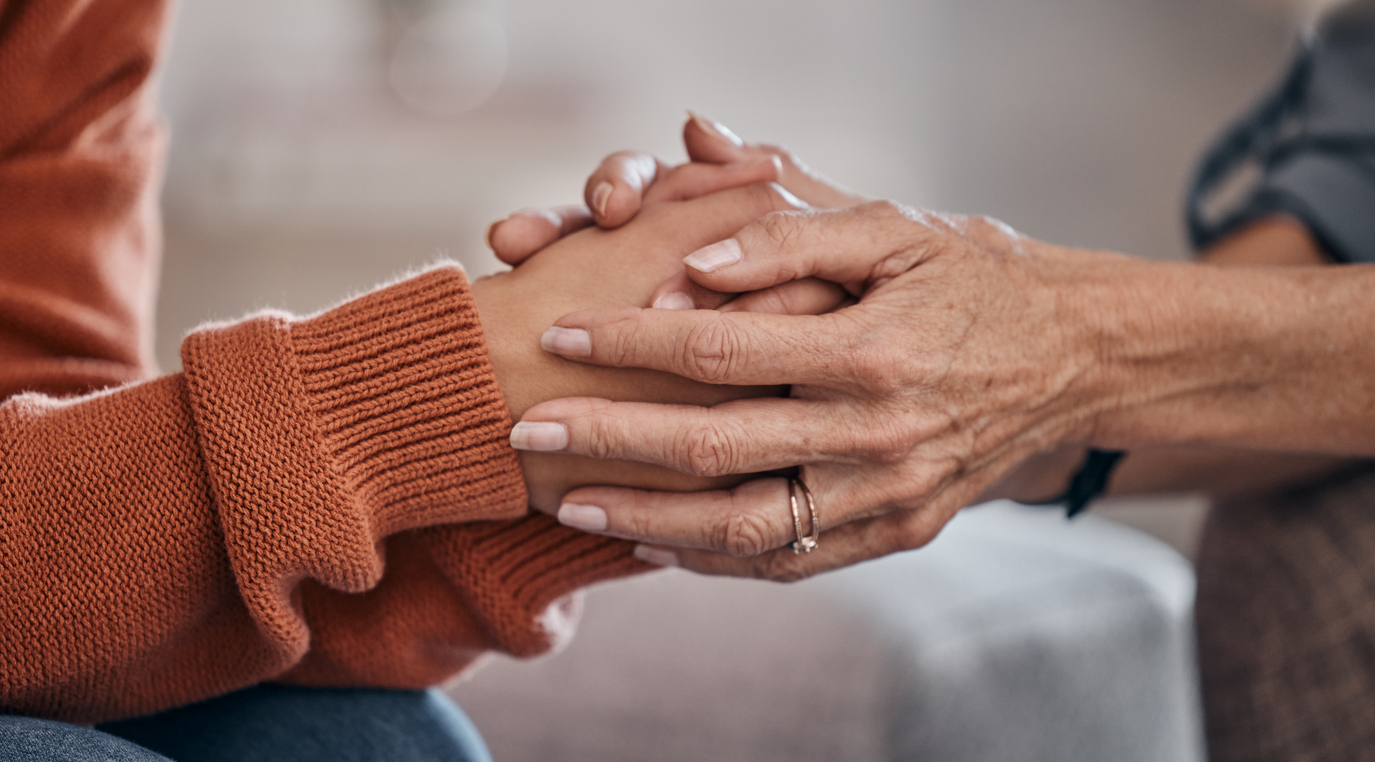
FRN: Is there anything else that you want to say about loneliness specifically or anything related to it?
Dr. Janina Scarlet: I think the main thing I just want to add is, for anyone who’s feeling lonely, who’s feeling invalidated or unseen, who’s feeling disconnected, please know that you’re not alone in this experience. And if you’re feeling that way right now, chances are at least four or five other people you know personally are going through this right now, but they might not think to tell you.
So, if we go about our day with the assumption that most people around us are going through the same level of loneliness as we are, I imagine we might be more willing to connect with people. And maybe we might reduce how much we’re masking. And maybe through doing that and through having conversations about loneliness, we can eradicate the stigma about this universal experience once and for all.
FRN: That was so good.
Dr. Janina Scarlet: Thank you so much for interviewing me.
—–

Dr. Janina Scarlet is a Licensed Clinical Psychologist, author, and a TEDx speaker. A Ukrainian-born refugee, she survived Chernobyl radiation and persecution. She immigrated to the United States at the age of 12 with her family and later, inspired by the X-Men, developed Superhero Therapy to help patients with anxiety, depression, and PTSD.
Dr. Scarlet is the recipient of the Eleanor Roosevelt Human Rights Award by the United Nations Association for her work on Superhero Therapy. Her work has been featured on Yahoo, BBC, NPR, Sunday Times, The New York Times, Forbes, and many other outlets. She regularly consults on books and television shows, including HBO’s The Young Justice.
Dr. Scarlet is the Lead Trauma Specialist at the Trauma and PTSD Healing Center. She’s authored twelve books, including Superhero Therapy, Harry Potter Therapy, Dark Agents, Super-Women, It Shouldn’t Be This Way, and her latest, Unseen, Unheard, Undervalued.
Tell us in the comments:
- Do you ever feel lonely?
- What strategies have you used to combat loneliness and feel more connected?
- How do you help others feel less lonely?
Featured Image: iStock.com/Ponomariova_Maria
